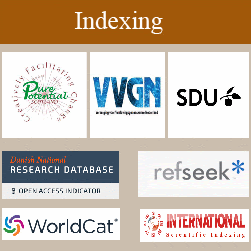Perceived stress and burden of caregiving among nurses in the United Arab Emirates during the COVID-19 pandemic
Author(s):
Rose Ekama Ilesanmi, Victoria Funmilayo Hanson, Eman Abdelaziz Rashad Dabou, Carol Avil Mathias
Objective: To examine the perceived stress and burden of caregiving during the COVID-19 pandemic among nurses in the United Arab Emirates.
Method: A descriptive survey was conducted in two selected hospitals in the UAE. A non-probability voluntary sample (n=64) of nurses working in the Intensive Care Unit (n=41) and isolation wards (n=24) was taken. Each respondent completed an online validated Perceived Stress Scale (PSS) Cronbach’s alpha=0.754; and Professional Care Team Burden Scale (Short version) Cronbach’s alpha =0.785. Range of scores on PSS was 0-40, categorized as, Low: 0-13, Moderate: 14-26 and High: 27-40, while the PCTB score was categorized into Low: 0-13, Moderate: 14-26 and High: 27-40. Pearson (r) correlation was used to determine the relationship between perceived stress and burden of care at 5% level of significance.
Results: Respondents’ mean age was 38.81 ± 7.23. In all, 61 nurses (95.3%) engaged in 12-hours duty, 59.4% were confident of fighting the virus and 57 (89.1%) signed up to work in these units, despite the fear of infecting their families (78.1%). Perceived stress scale showed that 50 (78.1%) experienced moderate level of stress with only 3.1% reporting high level of stress (x�?�?=18.3.47 ± 5.3), while 40 (62.5%) reported low burden of care (11.98 ± 3.78). There was positive correlation between mean PSS score and the PCTB (r=0.451, p=0.000).
Conclusion: Reported moderate perceived stress may suggest vulnerability to stress-related illness. Routine screening and more support from their employers to mitigate the adverse effects on their health is recommended.



